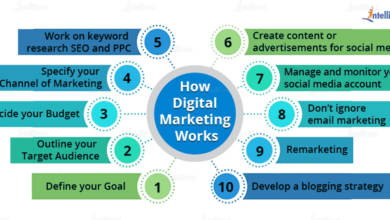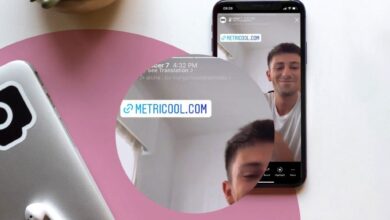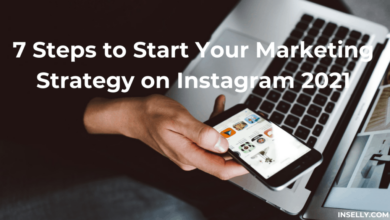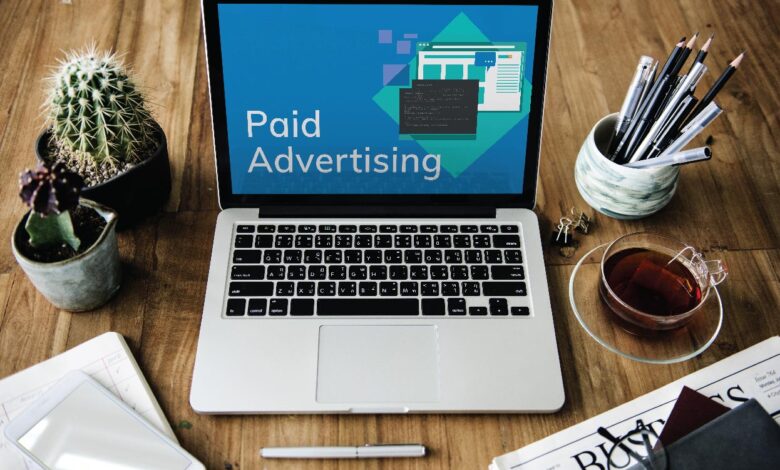
Paid Media Networks A Comprehensive Guide
Paid media networks are the cornerstone of modern marketing strategies. They connect brands with potential customers through various channels, from social media to search engines. Understanding how these networks function, their targeting capabilities, and effective campaign management is crucial for success in today’s competitive landscape. This guide dives deep into the world of paid media networks, providing a comprehensive overview of their features, functions, and future trends.
This exploration will cover the different types of paid media networks, their unique characteristics, and how they can be strategically utilized to achieve specific marketing goals. We’ll examine the intricacies of targeting specific audiences, the nuances of campaign management, and the crucial role of budgeting and cost considerations. Further, we’ll explore the integration of paid media with other marketing channels and uncover the emerging trends shaping the future of digital advertising.
Introduction to Paid Media Networks
Paid media networks are integral components of modern marketing strategies, allowing businesses to connect with their target audiences through various online platforms. These networks facilitate the display of advertisements and sponsored content, enabling brands to reach specific demographics and drive desired actions, such as website visits or sales. They leverage the vast reach and targeted capabilities of digital channels to maximize marketing ROI.Paid media networks act as intermediaries between advertisers and audiences, streamlining the process of reaching specific customer segments.
They provide the infrastructure and technology to manage ad campaigns, track performance metrics, and optimize results in real-time. This efficiency is crucial for today’s dynamic marketing landscape.
Types of Paid Media Networks
Paid media networks encompass a diverse range of platforms, each catering to unique advertising needs. Understanding these distinctions is key to developing effective marketing campaigns.
- Social Media Networks: Platforms like Facebook, Instagram, Twitter, and LinkedIn offer sophisticated targeting options, allowing advertisers to reach specific demographics, interests, and behaviors. These networks often integrate detailed user data to enable highly focused advertising campaigns, resulting in increased engagement and conversion rates.
- Search Engine Networks: Networks like Google Ads leverage search engine results pages (SERPs) to display ads based on user queries. This approach is highly effective for targeting users actively seeking information or products related to the advertised offerings. The pay-per-click (PPC) model in search engine networks allows advertisers to control their spending by paying only when a user clicks on their ad.
- Display Networks: These networks encompass a wide array of websites and applications that display advertisements. Targeting is often based on contextual relevance, allowing ads to appear alongside content that aligns with the advertiser’s product or service. This approach can be particularly valuable for reaching broad audiences interested in a particular industry or topic. Often, banner ads and other visual formats are used within display networks.
Comparison of Paid Media Networks
Different paid media networks cater to various marketing objectives and target audiences. This table highlights key differences:
| Network Type | Target Audience | Advantages | Disadvantages |
|---|---|---|---|
| Social Media | Specific demographics, interests, behaviors (e.g., young professionals, pet owners) | Highly targeted, measurable results, strong engagement potential, diverse ad formats | Potential for ad fatigue, competition for ad space, algorithm changes impacting reach |
| Search Engine | Users actively searching for products or information related to the advertised offering | High relevance, immediate results, strong conversion potential, pay-per-click model | Higher costs compared to other networks, competition, dependence on search engine algorithms |
| Display | Broad audiences with interests related to the advertised product or service | Large reach, diverse ad formats, contextual relevance, lower cost compared to search | Lower conversion rates, difficulty in measuring effectiveness, potential for ad blindness, less granular targeting |
Key Features and Functions
Paid media networks are crucial for businesses seeking to expand their reach and connect with potential customers. These platforms offer a variety of features and functions that streamline advertising campaigns, allowing businesses to target specific demographics, track performance, and optimize results. Understanding these features and functions is essential for effectively leveraging paid media networks for maximum impact.Different paid media networks cater to diverse needs and offer unique functionalities.
Their distinguishing features lie in the range of targeting options, ad formats, and reporting capabilities. This variety empowers advertisers to choose the platform best suited to their specific goals.
Distinguishing Features of Paid Media Networks
Various paid media networks stand out due to their distinct features. These include the options for targeting specific demographics, geographic locations, and interests, alongside the diversity of ad formats available. Furthermore, advanced analytics and reporting capabilities provide detailed insights into campaign performance.
- Targeting Options: Networks offer diverse targeting options beyond basic demographics. These might include detailed psychographic data, user behavior patterns, and contextual targeting. For instance, a network might allow targeting users who have expressed interest in a specific product category or those who frequently visit certain websites.
- Ad Formats: The variety of ad formats offered by different networks is a key differentiator. Some platforms specialize in video ads, while others excel in display advertising or social media integrations. This flexibility allows advertisers to tailor their ads to suit the specific platform and its audience.
- Reporting Capabilities: Sophisticated reporting tools are essential for monitoring campaign performance. Advanced metrics like click-through rates, conversion rates, and cost-per-acquisition are readily available on most networks, allowing advertisers to track progress and identify areas for improvement.
Functions in Driving Brand Awareness and Engagement
Paid media networks serve as powerful tools for increasing brand visibility and fostering audience engagement. By leveraging targeted advertising campaigns, businesses can reach specific segments of their target market and generate interest in their products or services.
- Brand Awareness: Paid media campaigns can effectively raise brand awareness by increasing visibility across various platforms. Repeated exposure to advertisements can familiarize potential customers with the brand and its offerings.
- Engagement: Well-designed advertisements can encourage audience interaction, driving engagement with the brand. This engagement can manifest in likes, shares, comments, and clicks, leading to increased brand loyalty and positive associations.
Targeted Advertising Campaigns
Paid media networks facilitate targeted advertising campaigns by allowing advertisers to meticulously define their audience. This precision targeting enhances the efficiency of advertising efforts, ensuring that ads are displayed to the most relevant individuals.
- Precise Targeting: Advanced targeting features enable businesses to pinpoint their ideal customers based on demographics, interests, behaviors, and other criteria. This precision minimizes wasted ad spend by focusing on the most promising audience segments.
- Improved ROI: By reaching the right audience, paid media campaigns significantly improve return on investment. The cost of reaching a qualified lead is significantly lower than reaching a less targeted audience.
Tracking Campaign Performance and Measuring ROI
Tracking campaign performance and measuring return on investment (ROI) is critical for optimizing future campaigns. Robust analytics tools provided by paid media networks enable detailed insights into campaign performance.
- Performance Metrics: Key metrics like click-through rates (CTR), conversion rates, and cost-per-acquisition (CPA) are essential for evaluating campaign effectiveness. These metrics offer a quantitative measure of campaign success.
- Attribution Modeling: Attribution modeling provides valuable insights into how different touchpoints contribute to conversions. This understanding helps businesses optimize their marketing strategies to maximize ROI.
Key Metrics for Assessing Campaign Success
The following table Artikels key metrics used to assess the success of campaigns on different paid media networks.
| Network | Metric | Description | Target Value |
|---|---|---|---|
| Google Ads | Click-Through Rate (CTR) | Percentage of impressions that resulted in clicks. | >2% |
| Facebook Ads | Engagement Rate | Number of interactions (likes, comments, shares) divided by reach. | >1% |
| LinkedIn Ads | Lead Generation Rate | Number of leads generated per ad spend. | >10 leads per $1000 |
| Twitter Ads | Reach | Number of unique users exposed to the ad. | >100,000 |
Targeting and Audience Segmentation
Understanding your target audience is crucial for the success of any paid media campaign. Precise targeting allows you to reach the right people with the right message at the right time, maximizing your return on investment. This involves more than just broad demographics; advanced targeting capabilities enable you to drill down into specific interests, behaviors, and even psychographics to find your ideal customer.
Advanced Targeting Capabilities
Paid media networks offer a plethora of advanced targeting options. These capabilities go beyond basic demographics and allow for highly specific audience segmentation. This level of granularity is critical for optimizing campaign performance and ensuring that your ad spend is directed towards the most receptive audience segments.
Demographic Targeting
Demographic targeting focuses on identifying your audience based on characteristics like age, gender, location, income, education, and occupation. This is a foundational element of many campaigns. For instance, a company selling luxury goods might target high-income individuals in specific metropolitan areas. Similarly, a children’s toy manufacturer could focus on parents with young children in a particular geographic region.
Interest-Based Targeting
Interest-based targeting delves deeper by identifying users based on their online activity, showing ads to those who demonstrate an interest in specific topics or products. This is a powerful tool for reaching individuals with a strong affinity for your product or service. A company selling hiking gear, for example, could target users who have shown interest in outdoor activities or specific hiking trails.
Paid media networks are a powerful tool for reaching a wider audience, but knowing how to use them effectively is key. To truly maximize your ROI, understanding creative strategies is crucial, like those covered in our upcoming creative webinar. Learning how to craft compelling visuals and engaging copy directly impacts your paid media campaigns, leading to higher conversion rates and a better return on investment.
Behavioral Targeting
Behavioral targeting focuses on past actions and online behavior. This includes website visits, purchase history, app usage, and more. For example, a company selling travel packages could target individuals who have recently booked flights or hotels, suggesting similar travel deals. This strategy is highly effective for retargeting and reminding users about previously viewed products.
Niche Audience Targeting Strategies
Reaching specific niche audiences requires a nuanced understanding of their interests and behaviors. Paid media networks enable you to combine various targeting methods to create highly refined segments. For example, a company specializing in vintage vinyl records could target users interested in music history, specific genres, or vintage record stores. Leveraging interests, hobbies, and online activity will ensure a targeted and effective campaign.
Custom and Lookalike Audiences
Creating custom audiences allows you to import your own customer data to target similar individuals. Lookalike audiences use your existing customer data to find new potential customers who share similar characteristics and behaviors. This strategy is particularly useful for expanding your reach and identifying new prospects. By analyzing the characteristics of your current customers, the network can identify new users with comparable attributes, ensuring the campaign effectively targets the ideal profile.
Targeting Options Table
| Targeting Method | Description | Benefits | Limitations |
|---|---|---|---|
| Demographic | Targeting based on age, gender, location, income, etc. | Easy to implement, broad reach. | Less precise, may not capture all potential customers. |
| Interest-Based | Targeting based on user interests and online activity. | High relevance, targeted approach. | Requires detailed understanding of user interests. |
| Behavioral | Targeting based on past actions, website visits, purchases, etc. | Highly effective for retargeting, reminders. | Data privacy concerns, potentially limited data availability. |
| Custom Audiences | Targeting using your own customer data. | High precision, tailored approach. | Requires data collection and integration. |
| Lookalike Audiences | Targeting users similar to your existing customers. | Effective for expanding reach, new customer acquisition. | Accuracy depends on the quality of your source data. |
Campaign Management and Optimization
Paid media campaigns are more than just launching ads. Effective campaign management involves a structured approach to setting up, executing, and continually refining campaigns to maximize return on investment (ROI). This involves meticulous planning, strategic ad creation, constant monitoring, and data-driven adjustments.Campaign success hinges on a dynamic interaction between meticulous planning, engaging ad creatives, and insightful analysis. This iterative process, built on strong data foundations, ensures campaigns remain optimized and relevant throughout their lifespan.
The key is to move beyond basic ad placement and instead cultivate a truly strategic approach.
Setting Up and Managing Paid Media Campaigns
Successful paid media campaigns require a well-defined setup process. This includes selecting the appropriate platforms based on target audience and campaign goals, defining clear objectives, and establishing a budget. Campaign management involves ongoing monitoring, reporting, and adjustments to ensure performance aligns with expectations. It also includes the ability to quickly pivot or adjust based on real-time performance data.
Creating Compelling Ad Creatives and Landing Pages
Compelling ad creatives and landing pages are critical to capturing audience attention and driving conversions. Ad creatives should be visually appealing, concise, and effectively communicate the value proposition. Landing pages should be user-friendly, load quickly, and clearly guide users toward the desired action. Strong visuals, concise messaging, and intuitive design are key elements. Consider incorporating high-quality images, videos, and compelling calls-to-action (CTAs) in ad creatives.
Landing pages should be optimized for mobile viewing and have a clear, concise layout.
A/B Testing Strategies for Optimizing Campaign Performance
A/B testing is a powerful tool for optimizing campaign performance. It involves creating variations of ad creatives, headlines, calls-to-action, or landing page elements and comparing their performance to determine which performs best. By rigorously testing different variations, marketers can continuously improve their campaigns and achieve significant gains in conversions and ROI. Examples include testing different headlines, images, and calls-to-action.
Using Data Analysis Tools to Refine Targeting and Ad Copy
Data analysis tools are essential for refining targeting and ad copy. These tools provide insights into campaign performance metrics, audience engagement, and ad effectiveness. By analyzing this data, marketers can identify areas for improvement in targeting, messaging, and creative design. This iterative approach allows for continual campaign optimization.
Creating a Successful Paid Media Campaign: Step-by-Step Guide
| Step | Action | Tools | Key Considerations |
|---|---|---|---|
| 1. Define Goals & Budget | Establish clear campaign objectives and allocate a realistic budget. | Spreadsheet software, budgeting tools | Consider campaign duration, expected ROI, and potential conversion rates. |
| 2. Target Audience Research | Identify the ideal customer profile and their online behavior. | Social media analytics, website analytics | Ensure your targeting strategies align with your campaign goals. |
| 3. Create Compelling Creatives | Design visually appealing and concise ad creatives. | Graphic design tools, video editing software | Consider your brand voice and target audience’s preferences. |
| 4. Optimize Landing Pages | Develop user-friendly landing pages that guide users towards desired actions. | Website builder tools, A/B testing platforms | Prioritize a seamless user experience. |
| 5. Run A/B Tests | Experiment with different ad variations to optimize performance. | A/B testing platforms | Focus on measurable metrics like click-through rates and conversions. |
| 6. Track & Analyze Data | Monitor campaign performance using analytics tools. | Google Analytics, platform-specific analytics dashboards | Identify areas for improvement and adjust strategies accordingly. |
| 7. Refine & Optimize | Iteratively refine targeting, creatives, and landing pages based on data insights. | All previous tools | Maintain a data-driven approach for ongoing optimization. |
Cost Considerations and Budgeting
Understanding the financial implications of paid media campaigns is crucial for success. A well-defined budget, coupled with smart strategies, can lead to a positive return on investment (ROI). This section delves into the various pricing models, budget development, optimization strategies, and cost-effective tactics for reaching target audiences.
Pricing Models in Paid Media Networks
Paid media networks employ diverse pricing models, each influencing the cost of advertising. Understanding these models is key to selecting the right approach for your campaign goals.
Paid media networks can be a powerful tool, but they’re only as effective as your strategy. To maximize your ROI, you need a solid content calendar to plan your campaigns. Understanding how to schedule your posts and target specific audiences is key, and how to create a content calendar will help you map out the perfect approach.
Ultimately, a well-structured content calendar will ensure your paid media investments deliver real results.
- Cost Per Click (CPC): Advertisers pay only when a user clicks on their ad. This model is popular for driving traffic to websites or landing pages. It aligns with performance-based goals, and the cost is directly linked to the user’s interaction with the ad.
- Cost Per Mille (CPM): Advertisers pay per thousand impressions of their ad. This model is suitable for brand awareness campaigns, where the focus is on reaching a large audience. CPM pricing is often used for display advertising and banner ads.
- Cost Per Acquisition (CPA): Advertisers pay only when a user completes a desired action, such as making a purchase or signing up for a newsletter. This performance-based model is highly effective for measuring the direct impact of advertising on conversions.
- Cost Per Engagement (CPE): Advertisers pay for specific user interactions with their ad, such as video views, likes, or comments. This is a good option for driving engagement and social media interaction.
Developing a Realistic Budget
Creating a realistic budget is essential for effective paid media campaigns. A well-structured budget is based on factors like target audience, campaign goals, and expected ROI.
- Define Clear Objectives: Start by clearly outlining the campaign’s goals, whether it’s driving website traffic, generating leads, or increasing brand awareness. Specific objectives help in allocating resources effectively.
- Set Realistic KPIs: Establish key performance indicators (KPIs) that align with your campaign objectives. This includes defining metrics such as click-through rates (CTR), conversion rates, and cost per acquisition (CPA).
- Estimate Costs: Determine the estimated costs associated with each pricing model and platform. Factor in ad creation, platform fees, and potential unexpected costs.
- Allocate Budget: Allocate your budget across different campaigns, channels, and targeting options, based on their projected performance.
Optimizing Ad Spend and Maximizing ROI
Optimizing ad spend and maximizing ROI is crucial for successful paid media campaigns. Continuous monitoring and adjustments are key to achieving optimal results.
- A/B Testing: Experiment with different ad creatives, headlines, and calls to action to identify what resonates best with your target audience.
- Targeting Refinement: Continuously refine your targeting parameters based on performance data to ensure you’re reaching the most relevant audience.
- Bid Management: Optimize your bids on various platforms to ensure you’re paying the right amount for each click or impression.
- Campaign Monitoring and Analysis: Regularly monitor campaign performance, analyze data, and make adjustments to improve results. Tools like Google Analytics can be used to gain valuable insights.
Cost-Effective Strategies
Cost-effective strategies for reaching a target audience can be achieved by focusing on high-performing channels and precise targeting.
- Retargeting Campaigns: Reconnect with users who have previously interacted with your brand, increasing the chances of conversion. This can be highly effective and cost-efficient.
- Social Media Ads: Leveraging the targeted advertising capabilities of social media platforms can often yield significant results with a reasonable budget.
- Influencer Marketing: Collaborating with relevant influencers to reach a wider audience can be a cost-effective way to generate brand awareness.
Pricing Model Comparison
| Network | Pricing Model | Examples | Advantages/Disadvantages |
|---|---|---|---|
| Google Ads | CPC, CPM, CPA | Search ads, display ads, video ads | Wide reach, detailed targeting, data-driven insights; high competition, fluctuating costs |
| Facebook Ads | CPC, CPM, CPA | Social media ads, targeted campaigns | Large user base, granular targeting options; potential for ad fatigue, platform-specific algorithms |
| LinkedIn Ads | CPC, CPM | Business-to-business (B2B) advertising | Professional network, specific targeting for professionals; limited reach compared to broader platforms |
| Bing Ads | CPC, CPM | Search ads | Alternative to Google Ads; often lower costs for similar results |
Integration with Other Marketing Channels: Paid Media Networks
Paid media networks aren’t islands; they thrive when integrated with other marketing channels. A cohesive strategy across , content marketing, email, and social media amplifies reach and impact, delivering a more comprehensive and effective customer journey. This integrated approach fosters a unified brand message and a more personalized customer experience.A well-orchestrated multi-channel marketing strategy utilizes the strengths of each channel to complement and reinforce the others.
This synergy maximizes return on investment (ROI) by targeting the right audience with the right message at the right time. A unified brand voice and consistent messaging across all platforms creates a stronger brand identity and fosters trust with customers.
Strategies for Creating a Cohesive Marketing Ecosystem
A cohesive marketing ecosystem hinges on meticulous planning and execution. Defining clear goals and objectives for each channel is paramount. This allows for a strategic allocation of resources and ensures that all efforts contribute towards the overarching marketing strategy. Furthermore, seamless data integration between channels is critical. This allows for a comprehensive understanding of customer behavior and preferences, which in turn allows for more targeted and effective campaigns.
A shared understanding of the customer journey across all channels is essential for delivering a consistent and personalized experience.
Examples of Successful Cross-Channel Campaigns
Numerous brands have successfully integrated paid media networks with other channels. For example, a company selling athletic apparel might run targeted social media ads to drive traffic to their blog posts about workout routines. These blog posts could then link to their website for purchases, supported by email marketing campaigns to nurture leads and promote special offers. This integrated approach creates a powerful customer journey that fosters engagement and conversions.
Another example is a travel agency using to rank high for relevant s, complemented by paid social media ads promoting specific destinations and special offers.
Importance of Maintaining Brand Consistency
Brand consistency is crucial for building trust and recognition. A consistent brand voice, visual identity, and messaging across all channels fosters a strong brand image and ensures a seamless customer experience. This unified approach builds recognition, reinforcing brand recall, and ultimately increasing customer loyalty. Maintaining consistency is vital to avoiding confusion and building trust with the target audience.
Paid media networks are crucial for boosting visibility, but understanding current selling trends is key. For example, Amazon selling trends, like the increasing popularity of certain product niches, can significantly impact your paid media strategies. Amazon selling trends are constantly evolving, so staying informed is vital for optimizing your campaigns. Ultimately, adjusting your paid media approach based on these shifts is crucial for long-term success.
Inconsistencies in brand messaging can damage the brand’s reputation and erode customer confidence.
Table Demonstrating Channel Integration with Paid Media
| Channel | Integration Strategy | Benefits | Challenges |
|---|---|---|---|
| Conduct research to identify relevant terms for paid media campaigns. Use paid media data to inform strategies, targeting s with high search volume and low competition. | Improved organic search rankings, increased visibility, enhanced credibility. | Requires ongoing optimization, potentially slower results compared to paid media. | |
| Content Marketing | Create high-quality content that aligns with paid media campaigns. Use paid media to promote content to a wider audience, driving traffic to the content and engaging with customers. | Improved brand authority, increased engagement, enhanced customer relationships. | Requires significant content creation and scheduling, potentially slower ROI compared to direct sales. |
| Email Marketing | Use paid media to acquire email subscribers and nurture leads. Segment audiences based on paid media campaign performance to tailor email content. | Increased customer engagement, personalized communication, higher conversion rates. | Requires a robust email list management strategy, potential for spam complaints if not handled properly. |
| Social Media Marketing | Run social media ads targeting specific demographics, interests, and behaviors identified by paid media analytics. Use social media to promote content and drive traffic to other channels. | Enhanced brand visibility, increased engagement, improved customer relationships. | Requires consistent posting schedules, monitoring of social media trends, and adapting to changing algorithms. |
Future Trends and Innovations
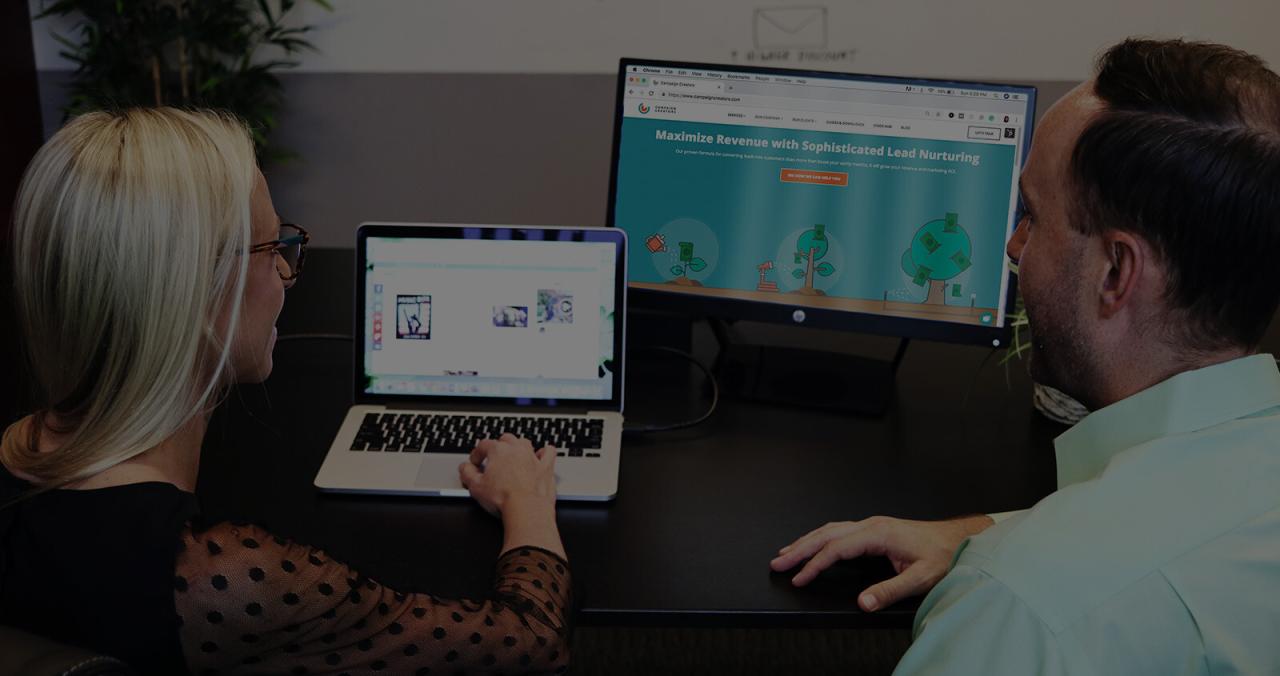
The paid media landscape is constantly evolving, driven by technological advancements and shifting consumer behaviors. Staying ahead of the curve is crucial for marketers to effectively reach their target audiences. This section explores emerging trends and innovations, highlighting their potential impact on paid media strategies.
Emerging Technologies Shaping Paid Media
New technologies are fundamentally reshaping how advertisers interact with consumers. Artificial intelligence (AI) is playing a pivotal role in automating tasks, optimizing campaigns, and providing more granular audience insights. Machine learning algorithms are increasingly sophisticated, enabling personalized ad experiences and dynamic bidding strategies. This leads to greater efficiency and effectiveness for advertisers. Real-time bidding (RTB) continues to evolve, offering more precise targeting and better control over ad placement.
The Rise of Programmatic Advertising
Programmatic advertising is rapidly becoming the dominant force in paid media. This automated system utilizes algorithms to buy and sell ad space in real-time, maximizing efficiency and targeting. This process often leverages data from various sources to create highly customized ad experiences. The evolution of programmatic advertising is driving increased transparency and accountability for advertisers, with platforms offering better reporting and analysis.
Real-time data feeds are critical for adjusting campaigns on the fly.
Augmented Reality (AR) and Virtual Reality (VR) in Advertising
Augmented reality (AR) and virtual reality (VR) are opening new avenues for engaging consumers. AR overlays digital content onto the real world, creating interactive experiences that can enhance brand awareness and product demonstrations. VR immerses users in simulated environments, offering compelling ways to showcase products and services in a captivating manner. These technologies are particularly impactful in showcasing products that are difficult to experience in the physical world.
Brands are increasingly exploring the potential of AR and VR to offer innovative interactive advertising.
The Impact of Social Commerce on Paid Media
Social commerce platforms are integrating seamlessly into the paid media ecosystem. Consumers are increasingly making purchases directly within social media apps, creating a powerful channel for advertisers. Brands can leverage social commerce to drive sales and engage with their audience on a more personal level. Paid media campaigns need to be integrated with these social shopping tools to maximize reach and conversions.
Future Trends in Paid Media Networks
| Trend | Description | Impact | Potential |
|---|---|---|---|
| AI-Powered Optimization | Algorithms optimize campaigns in real-time, adjusting bids and targeting based on performance data. | Increased efficiency, higher ROI, reduced manual effort. | Further automation of campaign management, greater personalization. |
| Hyper-Personalization | Ads are tailored to individual user preferences and behaviors, leading to higher engagement. | Improved ad relevance, reduced ad fatigue, increased conversion rates. | Enhanced customer experience, stronger brand loyalty. |
| Rise of Interactive Formats | Immersive experiences like AR/VR and interactive video ads are gaining traction. | Greater engagement and brand recall, improved user experience. | Increased creative potential, new avenues for customer interaction. |
| Privacy-Focused Targeting | Advertisers will rely on alternative data sources and technologies to target audiences ethically and transparently. | Compliance with privacy regulations, improved user trust. | Maintaining user privacy, promoting ethical advertising practices. |
| Omnichannel Integration | Paid media campaigns will be integrated with other marketing channels to provide a seamless customer experience. | Improved customer journey, enhanced brand consistency. | Synergistic marketing strategies, optimized customer engagement. |
Last Recap
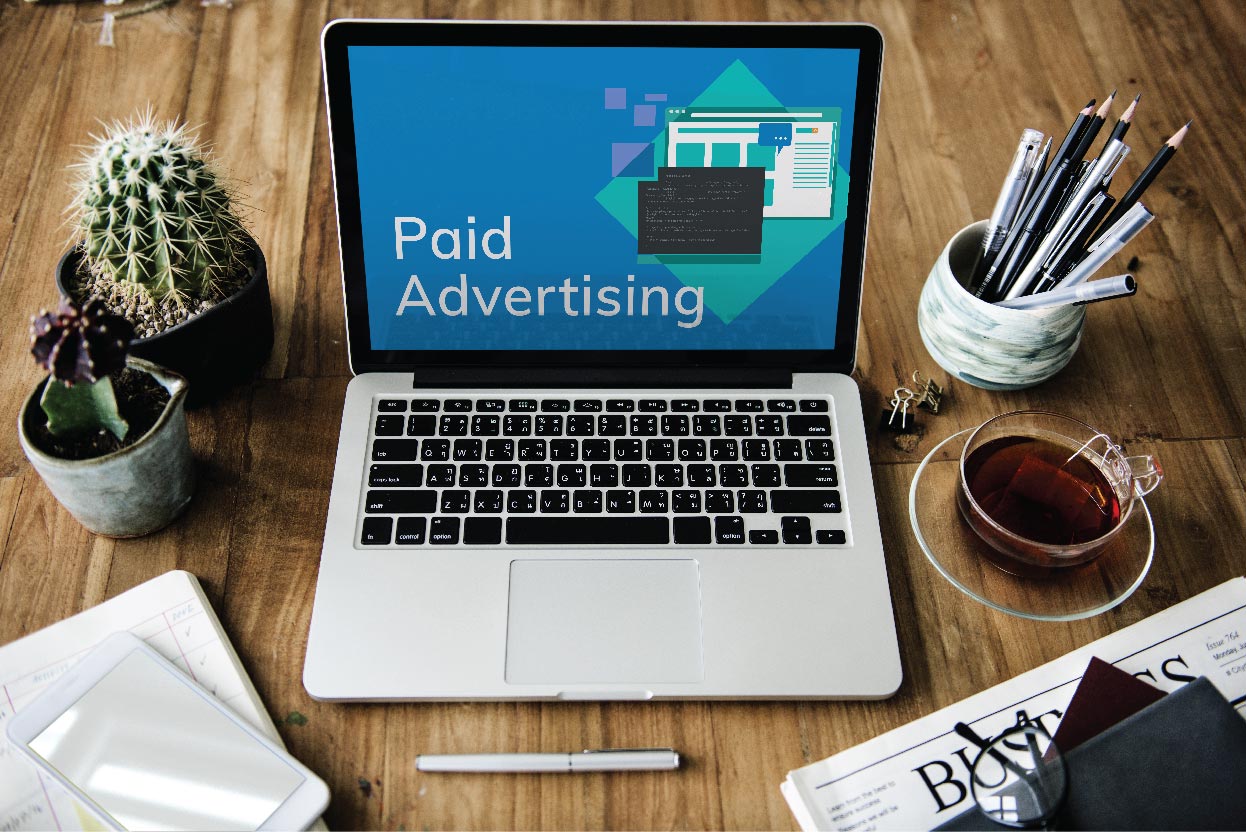
In conclusion, mastering paid media networks is essential for navigating the complexities of modern marketing. By understanding the diverse range of platforms, targeting strategies, and campaign management techniques, businesses can effectively reach their target audience and achieve their marketing objectives. This guide has provided a comprehensive overview, equipping readers with the knowledge and tools to confidently leverage paid media networks for optimal results.
